

Searching for fentanyl rehab in Louisville, KY, can feel overwhelming when every day brings new headlines about overdoses and counterfeit pills flooding the Bluegrass. You need a program that pairs evidence-based medical care with real-world support, not a one-size-fits-all promise.
Louisville Addiction Center offers detox referrals, Partial Hospitalization, Intensive Outpatient, and outpatient care, all guided by licensed clinicians who specialize in opioid use disorder.
Their Louisville-based team crafts personalized treatment plans that grow with you from the first day through lasting recovery.
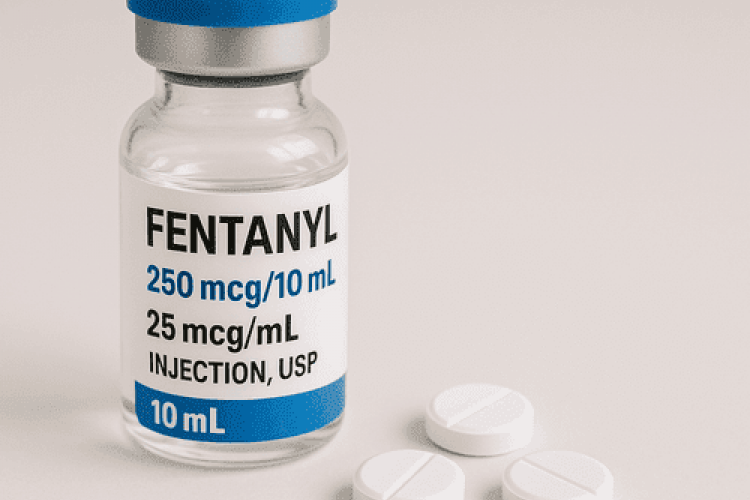
Fentanyl is a laboratory-made opioid that was designed for severe surgical and cancer pain, yet it delivers a punch far beyond most legal pain medicines.
The Centers for Disease Control and Prevention notes that even pharmaceutical-grade fentanyl is up to 50 times stronger than heroin and 100 times stronger than morphine.
Because just two milligrams—about the weight of a few grains of salt—can slow breathing to a standstill, the margin for error is razor-thin. Illicit suppliers exploit that power by pressing cheap fentanyl powder into fake “Percs” or “M-30” tablets, turning a single $5 pill into a lethal lottery ticket.
Kentucky saw 1,410 drug-overdose deaths in 2024, and fentanyl was detected in 62 percent of them (878 deaths). Jefferson County alone lost 292 residents to fentanyl-involved overdoses, underscoring how deeply the drug has infiltrated Louisville’s street supply.
Unlike past opioid waves that moved gradually from pill mills to heroin, fentanyl arrived almost overnight through counterfeit pills and powder—often sold online or delivered within minutes after a quick “fentanyl near me” search on social media.
The unpredictable potency in each batch forces users to gamble with every dose.
Potency is only half the story.
Fentanyl’s short half-life causes withdrawal symptoms—muscle pain, bone aches, uncontrollable chills—within hours, pushing many people to redose just to feel “normal.” Illegally made fentanyl is also mixed into cocaine, meth, and counterfeit Xanax, so users sometimes ingest it unknowingly and develop a dependence they never anticipated.
The result is a cycle of rapid tolerance, relentless cravings, and heightened overdose risk that outpaces traditional opioid-taper schedules.
Effective treatment, therefore, hinges on medications like buprenorphine or naltrexone, plus structured therapy that can address trauma and teach relapse-prevention skills—support that Louisville Addiction Center provides across its PHP, IOP, and outpatient tracks.
Kentucky continues to face a serious opioid crisis, and fentanyl remains at the center of it. This powerful synthetic opioid is now involved in the majority of overdose deaths across the state. While recent reports show some progress, Jefferson County—home to Louisville—still leads Kentucky in total overdose fatalities.
According to the Kentucky Office of Drug Control Policy 2023 Overdose Fatality Report, there were 1,984 overdose deaths statewide, and fentanyl was involved in over 79% of these cases. Jefferson County reported 496 overdose deaths—the highest of any county. This devastating trend highlights the urgent need for effective fentanyl addiction treatment in Louisville and surrounding communities.
At Louisville Addiction Center, we are committed to being part of the solution. Our outpatient fentanyl rehab program is designed to meet the needs of individuals struggling with opioid use disorder. We provide evidence-based therapies, medical support, and counseling services that focus on both the physical and emotional aspects of recovery.
Our outpatient approach allows clients to receive comprehensive treatment while continuing to live at home and maintain their work and family responsibilities. With a personalized care plan, each client has the tools and support to achieve lasting sobriety.
Fentanyl addiction can take hold quickly due to the potency of the drug. Furthermore, some people who abuse other illicit drugs could become addicted to fentanyl, which might be “cut” into other drugs.
When a person is addicted to drugs like fentanyl, they cannot stop using without help even when they face negative consequences as a result.
The following are signs of fentanyl addiction:
Fentanyl and other opioids are challenging and extremely addictive. This is due to the intense and uncomfortable withdrawal symptoms that appear after a person quits.
Often, the withdrawal symptoms are so intense that a person goes back to using for relief. That is why an inpatient detox program is critical to recovery from fentanyl addiction.
These programs help to monitor a person’s symptoms while also ensuring they don’t have access to drugs when cravings are at their peak. Inpatient detox is also a prerequisite for many continuing rehab programs, like residential treatment and outpatient services.
Fentanyl leaves the bloodstream quickly, so that withdrawal can hit hard within just six to eight hours of the last dose. Red-flag symptoms include relentless vomiting or diarrhea that causes dehydration, uncontrollable shaking or goose-flesh, heart-pounding anxiety, soaring blood pressure, or any lapse into confusion or nodding that makes it hard to stay awake.
If the person can’t keep fluids down, can’t regulate body temperature, or shows signs of breathing irregularities, a medically supervised detox unit is the safest first step.
These teams can provide IV hydration, symptom-relief medications, and continuous monitoring—services no home environment can match.
In theory, a slow taper reduces the shock to the body, but fentanyl’s potency and short half-life make a do-it-yourself schedule risky. Tablets and powders bought on the street rarely contain consistent doses, so cutting back “a little” could still trigger severe withdrawal—or, worse, leave enough drug to cause an accidental overdose.
Even pharmaceutical fentanyl patches can deliver uneven absorption once they’re cut or removed early. Without a clinician to adjust dosing and manage cravings, home tapers often collapse into a cycle of misery and relapse.
A formal detox program can introduce medications such as buprenorphine or clonidine at the exact moment they’re most effective, easing distress and improving retention in subsequent treatment.
Louisville Addiction Center focuses on Partial Hospitalization, Intensive Outpatient, and standard Outpatient care, so it partners with licensed inpatient detox providers across Kentucky for the critical first 5–7 days.
When you call the admissions line, an intake specialist conducts a brief screening, verifies insurance, and—if medical detox is indicated—can book a same-day bed at a trusted facility.
Once stabilization is complete, our team arranges a seamless transfer into its PHP, where clients receive medication-assisted treatment, evidence-based therapy, and daily medical check-ins.
This approach ensures you or your loved one moves from the phase of searching for a “fentanyl detox near me” to structured recovery without gaps that invite relapse.
When people search “drug rehab centers Louisville” or “fentanyl detox centers” online, they often expect one facility to handle every step from medically managed withdrawal to long-term therapy. In reality, the treatment pathway in Kentucky is usually a two-stage process.
First, clients enter an inpatient hospital or standalone detox program that is licensed to administer 24-hour medical care, stabilize vital signs, and initiate medications such as buprenorphine or methadone. Once the acute danger of withdrawal has passed, typically within five to seven days, they transition to a partial hospitalization or intensive outpatient setting for continuing care.
Louisville Addiction Center specializes in this second stage. Our facility does not operate inpatient beds; instead, it focuses on three evidence-based levels of care—Partial Hospitalization Program (PHP), Intensive Outpatient Program (IOP), and standard Outpatient Program (OP)—all of which can include Medication-Assisted Treatment.
By partnering with reputable fentanyl detox centers across Kentucky, Louisville Addiction Center ensures that clients receive around-the-clock medical oversight during withdrawal and then move seamlessly into a structured therapeutic environment without gaps that increase relapse risk.
This coordinated approach allows Louisville Addiction Center to devote its clinical resources to what it does best: daily group and individual therapy, trauma-informed counseling, relapse-prevention planning, and ongoing medication management.
For families comparing drug rehab centers in Louisville, the key question isn’t whether a single campus offers every service under one roof, but whether each stage—detox and rehab—is delivered by specialists equipped for that specific phase of recovery.
Louisville Addiction Center structures its fentanyl treatment much like the best fentanyl rehab centers nationwide—only every step happens right here in Jefferson County.
Instead of a one-size-fits-all stay, care unfolds through three outpatient levels that can be adjusted as you recover and regain independence.
No single “silver bullet” cures fentanyl use disorder, but Louisville Addiction Center combines two FDA-approved medications with a short list of research-backed therapies that the facility publicly advertises. Together, they give clients the best odds of staying in treatment and steering clear of relapse.

No single “silver bullet” cures fentanyl use disorder, but Louisville Addiction Center combines two FDA-approved medications with a short list of research-backed therapies that the facility publicly advertises. Together, they give clients the best odds of staying in treatment and steering clear of relapse.
Louisville Addiction Center administers these injections across Partial Hospitalization, Intensive Outpatient, and standard Outpatient tracks, allowing most clients to avoid the daily clinic visits methadone requires. MAT is always paired with counseling; medication alone is never considered treatment.

Roughly half of the people entering opioid treatment also meet criteria for anxiety disorders, post-traumatic stress disorder, or depression.
Louisville Addiction Center offers a dedicated dual diagnosis track that screens every newcomer for co-occurring conditions and delivers CBT/DBT in tandem with medication management, mindfulness groups, and holistic add-ons such as yoga.
Anxiety disorders and PTSD are specifically named among the program’s target conditions, underscoring its relevance for fentanyl clients.

Cognitive Behavioral Therapy (CBT)—helps clients spot thought patterns (“I can’t cope without fentanyl”) and replace them with realistic, recovery-focused alternatives.
Dialectical Behavior Therapy (DBT)—adds emotion-regulation and distress-tolerance skills for people who relapse when feelings spike.
Trauma-Focused Modalities (EMDR, Brainspotting)—address the root experiences that often drive opioid misuse.
Fentanyl’s short half-life triggers severe withdrawal within hours; buprenorphine or naltrexone steadies the body so clients can engage with therapy instead of white-knuckling cravings.
Meanwhile, CBT and DBT supply day-to-day coping tools, and trauma work lowers the emotional temperature that often ignites relapse.
For clients who also battle anxiety or PTSD, the dual-diagnosis pathway ensures those symptoms don’t sabotage progress.
In short, Louisville Addiction Center’s blend of injectable MAT, evidence-based talk therapies, and integrated mental-health care mirrors the treatment algorithms recommended by leading fentanyl treatment centers. Still, you can access it without leaving Jefferson County.
When people type “fentanyl treatment near me,” they are really asking, “What will my life look like if I enroll?” At Louisville Addiction Center, daily structure depends on the level of care you enter, but the Partial Hospitalization Program (often the first stop after medical detox) offers a clear snapshot:
| Time | Example Activity* | Focus |
|---|---|---|
| 9:00 a.m. | Check-in, vital signs, and medication review | Stabilize mood, adjust buprenorphine or naltrexone if needed |
| 9:30 a.m. | Process Group | Share wins and challenges, practice peer feedback |
| 11:00 a.m. | Skills Workshop (CBT or DBT) | Learn triggers, craving-management tools |
| Noon | Lunch Break | Nutritional reset and informal peer support |
| 1:00 p.m. | Individual Therapy | Work one-on-one on trauma or dual-diagnosis issues |
| 2:00 p.m. | Psycho-education or Family Session | Understand relapse cycles, rebuild communication |
| 3:00 p.m. | Wrap-Up & Goal Setting | Plan evening recovery tasks, confirm next-day meds |
*Times and topics are illustrative; exact schedules may vary by therapist availability and individual care plans.
Group sessions dominate the morning because shared experience accelerates insight, while private therapy in the afternoon lets clinicians tailor strategies to personal history. Medication-management appointments are woven into the day so any dose adjustments happen in real time with no separate clinic trip required.
Whether you remain in Partial Hospitalization, step down to Intensive Outpatient, or transition into standard Outpatient, this mix of medical oversight, group connection, and individual attention anchors each stage of recovery.
The length of fentanyl rehab in Louisville, KY, is shaped by medical need, insurance coverage, and personal progress, but most clients follow a three-tier pattern:
Factors that shorten or extend treatment include the severity of fentanyl use, the presence of anxiety or PTSD, the strength of a client’s support network, and how quickly insurance authorizations are renewed.
Some people complete all three levels in as little as 90 days; others opt for ongoing Outpatient touchpoints during high-stress seasons or anniversaries.
Louisville Addiction Center’s step-down model lets clients move between levels without changing therapists, ensuring continuity until they and their care team agree that goals are met.
Partial Hospitalization is the most intensive option. Clients attend five-to-six-hour clinical days, at least five days per week, then return home or to sober housing at night.
Services include individual therapy, daily process groups, family counseling, and MAT check-ins.
Because PHP mirrors the structure of residential rehab without requiring an overnight stay, it’s ideal after medical detox or for people who need robust monitoring but still have a safe place to sleep.
Intensive Outpatient steps the commitment down to roughly nine to twenty therapy hours spread over three to five evening or weekend sessions—perfect for maintaining a job or caring for family while still receiving structured support.
Curriculum focuses on relapse-prevention skills, cognitive-behavioral strategies, and peer support. Many clients use IOP as a bridge between PHP and ordinary life, practicing new coping tools while responsibilities gradually increase.
Yes. Standard Outpatient is the lightest touch, generally one to three therapy blocks per week. Yet, it keeps you connected to counselors, medication management, and weekly recovery groups as real-world pressures mount.
Clients fine-tune relapse-prevention plans, address lingering mental-health issues, and check in about MAT injections or dose adjustments. The flexible format lets you continue therapy for as long as you need, whether that’s a few months of accountability or a safety net during high-risk seasons such as holidays.
Across every level, Louisville Addiction Center’s multidisciplinary team coordinates care so you never have to navigate gaps between detox, therapy, and medication.
If your symptoms flare or your schedule shifts, you can move up or down the outpatient ladder without changing providers, ensuring continuous, customized support on the journey from crisis to lasting recovery.
The price tag for care at fentanyl rehab centers varies with the level of support you choose—Partial Hospitalization, Intensive Outpatient, or standard Outpatient—but Louisville Addiction Center aims to keep every option within reach.
The facility works directly with major regional and national commercial insurers. It can check your benefits in minutes through a confidential “Verify Your Insurance” form or a quick call to the admissions team.
For those without adequate coverage, staff outline transparent self-pay rates and flexible payment plans up front, so there are no surprise fees down the road. The center also educates families on Employee Assistance Programs, sliding-scale arrangements, and other financing paths that can narrow the gap between quoted costs and what you pay.
In short, whether your plan picks up most of the bill or you need a tailored payment strategy, Louisville Addiction Center removes as many financial barriers as possible so the decision to get help hinges on readiness, not your wallet.








Many graduates taper into the center’s flexible Outpatient Program—meeting one to three times a week for therapy, medication check-ins, and skills tune-ups—to maintain professional accountability as real-world pressures resume.
On-site and referral-based peer meetings offer a place to share victories, troubleshoot triggers, and widen your sober network—critical safeguards against isolation.
Together, these elements extend the structure of formal rehab into everyday life, helping you transform early momentum into durable, fentanyl-free recovery.
Fentanyl is a laboratory-made opioid originally developed for severe pain, but it has become a major driver of opioid addiction because of its extreme potency and the way it shows up in the illicit drug supply. A very small amount can have a powerful effect, which creates a razor-thin margin between a dose someone expects and a dose that can become life-threatening.
Quitting can feel uniquely difficult because fentanyl leaves the bloodstream quickly. That fast drop can trigger withdrawal symptoms within hours, which often creates a cycle where someone uses again simply to stop feeling sick and get back to feeling “normal.” The withdrawal experience can include intense body aches, chills, anxiety, and overwhelming cravings that can feel nonstop.
Another challenge is that fentanyl is often pressed into counterfeit pills or mixed into other street drugs. That means some people develop dependence without realizing they were taking fentanyl consistently. When dependence is unexpected, the withdrawal and cravings can feel confusing and frightening.
Because the cycle can move fast, effective treatment focuses on stabilizing the body and cravings while also building coping skills and relapse-prevention tools. This combination can help people break the loop of withdrawal-driven use and begin making steady recovery progress.
Fentanyl is described as far stronger than many other opioids, including heroin and common prescription pain medications. The danger is that a dose can be extremely small yet still overwhelm breathing. The page emphasizes that even a tiny amount can slow breathing dramatically, which makes accidental overdose risk much higher than many people expect.
This matters because the illicit supply often does not provide consistent strength from one pill or batch to the next. Counterfeit tablets that look like familiar prescription pills can contain fentanyl in unpredictable amounts. That unpredictability turns each use into a gamble, especially for someone who believes they know what they are taking.
Potency also affects addiction severity. Stronger opioids can drive rapid tolerance and stronger cravings, which can make it feel harder to step away. When someone tries to cut back on their own, inconsistent street doses can backfire by triggering severe withdrawal or creating overdose risk if a person takes more than intended.
Because of these realities, treatment planning often focuses on safety, stabilization, and structure. The goal is to reduce the medical risk tied to fentanyl’s strength while helping a person move toward recovery in a controlled, supported way.
Fentanyl has contributed to a high number of overdose deaths in Kentucky because it can spread quickly through counterfeit pills and powder, and its potency makes small dosing errors dangerous. The page describes how fentanyl can appear in fake tablets and other products, meaning people may take it without fully understanding what is in the substance they purchased.
Kentucky has seen a large number of overdose deaths in a recent year, with fentanyl involved in a majority of those deaths. The page also highlights the impact on Jefferson County, showing how deeply fentanyl has affected local communities. When a substance becomes common in the street supply, the risk rises not only for people who knowingly use opioids, but also for those who may be exposed through contaminated or counterfeit drugs.
Another factor is the rapid cycle fentanyl creates. Because withdrawal can begin quickly, people may use more frequently to avoid feeling sick. That frequent use increases the number of risky moments, especially when potency varies.
The takeaway is that fentanyl’s presence and unpredictability increase overdose risk in a way that can outpace older opioid patterns. This is why quick access to structured treatment and medical support can be so important in Louisville and across Kentucky.
Fentanyl addiction can take hold quickly, and it may also develop when fentanyl is mixed into other drugs. A major sign that someone needs help is the inability to stop using even when substance use is clearly causing negative consequences. The page lists common signs such as declining performance at work or school, withdrawing from loved ones, difficulty managing responsibilities, risky behaviors while using, intense cravings, sudden mood or behavior changes, and withdrawal symptoms when use stops.
Withdrawal can be so uncomfortable that people return to use just for relief. That is why an inpatient detox setting can be critical, especially when cravings peak and symptoms are hard to manage safely at home. The page notes that fentanyl withdrawal can hit within about six to eight hours after the last dose because fentanyl leaves the bloodstream quickly.
Red-flag withdrawal symptoms include relentless vomiting or diarrhea that leads to dehydration, uncontrollable shaking or goose-flesh, heart-pounding anxiety, very high blood pressure, confusion, or nodding off in a way that makes it hard to stay awake. If someone cannot keep fluids down, cannot regulate body temperature, or shows breathing irregularities, medically supervised detox is described as the safest first step.
Many people assume one facility will handle everything from detox through long-term therapy, but the page explains that treatment in Kentucky is often a two-stage process. The first stage is typically an inpatient hospital or standalone detox program licensed to provide 24-hour medical care, stabilize vital signs, and begin medications used for opioid withdrawal support. After the acute danger of withdrawal passes, often within five to seven days, people transition into ongoing rehab services such as partial hospitalization or intensive outpatient care.
Louisville Addiction Center is described as specializing in the second stage of treatment rather than operating inpatient beds. The program focuses on three outpatient levels of care: Partial Hospitalization Program, Intensive Outpatient Program, and standard Outpatient Program. These levels can include medication-assisted treatment and are designed to support continued recovery once someone is medically stabilized.
Detox coordination is built into the admissions process. The page describes a brief screening and insurance verification, with the ability to help book a same-day detox bed when medical detox is indicated. After detox, the transition into PHP is designed to be seamless so people do not experience gaps that can increase relapse risk during a highly vulnerable time.
After detox, the program is structured as a step-down model with three outpatient levels that can be adjusted as recovery progresses. Instead of a one-size-fits-all stay, care can move from the highest level of outpatient support to more flexible services as a person regains stability and independence. The three levels described are Partial Hospitalization Program, Intensive Outpatient Program, and standard Outpatient Program.
Partial Hospitalization is presented as the most intensive option. Clients attend structured clinical days for several hours, at least five days per week, while returning home or to sober housing at night. Services include individual therapy, daily groups, family counseling, and medication check-ins, which helps many people build momentum immediately after detox.
Intensive Outpatient steps down to fewer weekly hours, often spread across evening or weekend sessions. This format supports returning to work, school, or family responsibilities while still receiving structured treatment. Standard Outpatient is described as the lightest touch, often one to three therapy blocks per week, and can continue as long as needed for accountability, counseling, and medication management.
Across all levels, the approach is designed to reduce gaps between detox, therapy, and medication support, allowing movement up or down the care ladder without changing providers.
The program described combines medication-assisted treatment with a focused set of evidence-based therapies. On the medication side, the page highlights two monthly injection options used across PHP, IOP, and Outpatient care. One is buprenorphine delivered as a once-monthly injection, described as a partial opioid agonist that reduces withdrawal and cravings without producing a fentanyl-level high. The other is naltrexone delivered as a once-monthly injection, described as an opioid antagonist that blocks receptor sites so a return to use is less likely to produce the expected euphoria.
A major advantage of the monthly injection model is that many clients can avoid daily clinic visits associated with certain other medication approaches. The page also emphasizes that medication alone is not considered treatment and is always paired with counseling.
On the therapy side, the page lists Cognitive Behavioral Therapy to help replace recovery-blocking thoughts with realistic alternatives, Dialectical Behavior Therapy to build emotion regulation and distress tolerance, and trauma-focused modalities such as EMDR and brainspotting to address experiences that can drive opioid misuse. The program also describes integrated dual diagnosis care that screens for co-occurring mental health conditions and combines therapy with medication management, mindfulness groups, and holistic add-ons such as yoga.
A typical day in the program depends on the level of care, but the page provides an example snapshot for Partial Hospitalization, often the first stop after detox. The day can include morning check-ins with vital signs and medication review, process groups for peer feedback and accountability, skills workshops using CBT or DBT tools, and individual therapy focused on trauma or dual diagnosis concerns. The structure also includes education or family sessions and end-of-day goal setting to plan evening recovery tasks and confirm next steps.
Length of treatment is shaped by medical need, insurance coverage, and personal progress, but the page describes a common three-tier pattern. PHP is often about 30 days to build momentum and fine-tune medication support. IOP commonly lasts about 6 to 12 weeks to support real-life practice while maintaining structure. Standard Outpatient may continue longer at one to three sessions per week to support accountability and relapse-prevention planning.
After rehab, aftercare planning is built while still in treatment. The aftercare roadmap includes outpatient step-down support, community peer groups to reduce isolation, and a plan for high-risk scenarios with emergency contacts and follow-up care. The goal is to extend structure into everyday life so progress holds up when normal pressures return.
Fentanyl is one of the most potent synthetic opioids and carries an extremely high overdose risk. Because of its strength, dependence can develop rapidly and withdrawal symptoms can be intense. Louisville Addiction Center provides medically supervised fentanyl detox and comprehensive opioid rehab in Louisville, Kentucky.
Withdrawal from fentanyl may include severe body pain, vomiting, insomnia, anxiety, rapid heart rate, and overwhelming cravings. Detoxing without medical supervision greatly increases relapse and overdose risk. Our team provides 24/7 monitoring, medication-assisted treatment when clinically appropriate, psychiatric care, and structured therapy.
Beyond detox, our residential program focuses on trauma resolution, relapse prevention planning, emotional regulation, and long-term recovery skill development.
If you or someone you love is struggling with fentanyl addiction in Louisville, immediate support can save lives.
Call Louisville Addiction Center now for confidential admissions assistance. The sooner treatment begins, the stronger your recovery foundation will be.
A single conversation can move you—or someone you love—from crisis to a clear plan for recovery. Call 502-586-4554 any time to connect with an admissions specialist; every call is private and obligation-free. Louisville Addiction Center
Want a quick cost check?
Use the Verify Your Insurance tool on our website for an instant, no-cost benefits review.
With coverage confirmed, Louisville Addiction Center can arrange same-day or next-day admission when clinically appropriate, ensuring no gap between detox and therapy.
From your first intake to your first group session, licensed clinicians keep you supported and informed every step of the way. Reach out now and start building a life free from fentanyl. Recovery is possible, and it begins with this call. Take action today—hope answers quickly.


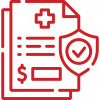

Get Family Support Now
We understand addiction affects the whole family. Our comprehensive family program helps rebuild trust and restore relationships.
Weekly Family Therapy Sessions
Educational Workshops
Support Groups
Communication Skills Training

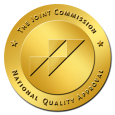
Centers for Disease Control and Prevention. (2024, April 2). Fentanyl facts. CDC. Retrieved August 22, 2025, from https://www.cdc.gov/stop-overdose/caring/fentanyl-facts.html Louisville Addiction CenterCDC+2CDC+2
Kentucky Office of Drug Control Policy, Kentucky Injury Prevention and Research Center. (2025). 2024 Kentucky drug overdose fatality report. KDOCSP. Retrieved August 22, 2025, from https://odcp.ky.gov/Reports/2024%20Drug%20Overdose%20Fatality%20Report.pdf justice.ky.gov+4odcp.ky.gov+4odcp.ky.gov+4
CDC, National Center for Health Statistics. (2025, May 14). U.S. overdose deaths decrease almost 27% in 2024. CDC. Retrieved August 22, 2025, from https://www.cdc.gov/nchs/pressroom/releases/20250514.html CDC+1
Centers for Disease Control and Prevention. (2025, June 9). Fentanyl. CDC Overdose Prevention. Retrieved August 22, 2025, from https://www.cdc.gov/overdose-prevention/about/fentanyl.html CDC+1
Centers for Disease Control and Prevention. (2025, August 7). SUDORS dashboard: fatal drug overdose data. Overdose Prevention. Retrieved August 22, 2025, from https://www.cdc.gov/overdose-prevention/data-research/facts-stats/sudors-dashboard-fatal-overdose-data.html CDC
Centers for Disease Control and Prevention. (2025, February). Understanding the opioid overdose epidemic. Overdose Prevention. Retrieved August 22, 2025, from https://www.cdc.gov/overdose-prevention/about/understanding-the-opioid-overdose-epidemic.html CDC
Centers for Disease Control and Prevention. (2024, September 23). Fentanyl fact sheet. Overdose Resource Exchange. Retrieved August 22, 2025, from https://www.cdc.gov/overdose-resources/files/fentanyl-fact-sheet.html CDC



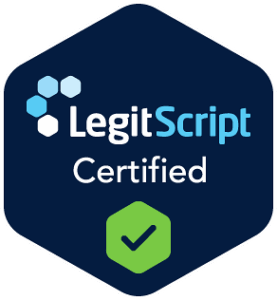
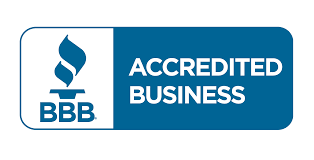




The information presented on Louisville Addiction Center website pages is intended solely for general educational and informational purposes related to addiction treatment, medical detoxification, rehabilitation services, and recovery support. This content is not intended to serve as medical advice, diagnosis, treatment planning, or a substitute for professional medical care. Substance use disorders are complex medical conditions that require individualized evaluation by qualified healthcare professionals.
Detoxification and rehabilitation needs vary widely based on the type of substance used, duration and frequency of use, physical health, mental health history, co-occurring disorders, and other individual factors. Information discussing detox timelines, withdrawal symptoms, medications, or treatment approaches is generalized and may not apply to every individual. Treatment decisions should always be made in consultation with licensed physicians, addiction specialists, or behavioral health providers.
If you or someone you love is experiencing a medical emergency — including but not limited to overdose, seizures, loss of consciousness, breathing difficulties, chest pain, suicidal thoughts, or violent behavior — call 911 immediately or go to the nearest emergency room. Louisville Addiction Center does not provide emergency medical services through this website, and no online content should delay urgent medical intervention.
Attempting to detox from alcohol, opioids, benzodiazepines, or other substances without medical supervision can be dangerous and potentially life-threatening. Withdrawal symptoms can be unpredictable and severe. Any detox-related information provided is for awareness only and should never replace professional medical oversight.
Information regarding insurance coverage, treatment costs, or payment options is provided for general guidance purposes only. Insurance benefits vary by carrier, policy, state regulations, and medical necessity determinations. Coverage information is not guaranteed and may change without notice. Louisville Addiction Center strongly encourages individuals to contact our admissions team directly to verify insurance benefits, eligibility, and coverage prior to making treatment decisions.
While reasonable efforts are made to ensure accuracy, Louisville Addiction Center makes no warranties regarding the completeness or timeliness of website content. Healthcare regulations, clinical standards, and insurance policies evolve regularly. Reliance on any information provided is at your own risk.
This website may include references or links to third-party resources for informational purposes. Such references do not constitute endorsements. Louisville Addiction Center is not responsible for external content, services, or policies.
Use of this website does not establish a provider-patient relationship. Contacting Louisville Addiction Center does not guarantee admission or treatment. Recovery outcomes vary and are never guaranteed.
The content available on Louisville Addiction Center pages is designed to provide educational information related to addiction, detoxification, rehabilitation, and recovery. This information should not be interpreted as professional medical advice or treatment recommendations.
Addiction treatment is highly individualized. Detox and rehab needs vary significantly based on health history, substance use patterns, and mental health considerations. Information provided is general and may not apply to all individuals.
If an emergency arises — such as overdose, severe withdrawal symptoms, or immediate danger — call 911 without delay. Online resources are not a substitute for emergency medical care.
Medical detox should always be conducted under professional supervision. Attempting detox without medical oversight can be dangerous.
Insurance information is provided as general guidance only. Coverage varies by plan and carrier. Louisville Addiction Center encourages all individuals to verify benefits directly with admissions staff.
Recovery outcomes are not guaranteed. Treatment effectiveness depends on many factors including engagement, clinical needs, and aftercare support.
References to external resources do not imply endorsement. Louisville Addiction Center is not responsible for third-party content.
Website use does not establish a provider-patient relationship.
Centers for Disease Control and Prevention. (2024, April 2). Fentanyl facts. CDC. Retrieved August 22, 2025, from https://www.cdc.gov/stop-overdose/caring/fentanyl-facts.html Louisville Addiction CenterCDC+2CDC+2
Kentucky Office of Drug Control Policy, Kentucky Injury Prevention and Research Center. (2025). 2024 Kentucky drug overdose fatality report. KDOCSP. Retrieved August 22, 2025, from https://odcp.ky.gov/Reports/2024%20Drug%20Overdose%20Fatality%20Report.pdf justice.ky.gov+4odcp.ky.gov+4odcp.ky.gov+4
CDC, National Center for Health Statistics. (2025, May 14). U.S. overdose deaths decrease almost 27% in 2024. CDC. Retrieved August 22, 2025, from https://www.cdc.gov/nchs/pressroom/releases/20250514.html CDC+1
Centers for Disease Control and Prevention. (2025, June 9). Fentanyl. CDC Overdose Prevention. Retrieved August 22, 2025, from https://www.cdc.gov/overdose-prevention/about/fentanyl.html CDC+1
Centers for Disease Control and Prevention. (2025, August 7). SUDORS dashboard: fatal drug overdose data. Overdose Prevention. Retrieved August 22, 2025, from https://www.cdc.gov/overdose-prevention/data-research/facts-stats/sudors-dashboard-fatal-overdose-data.html CDC
Centers for Disease Control and Prevention. (2025, February). Understanding the opioid overdose epidemic. Overdose Prevention. Retrieved August 22, 2025, from https://www.cdc.gov/overdose-prevention/about/understanding-the-opioid-overdose-epidemic.html CDC
Centers for Disease Control and Prevention. (2024, September 23). Fentanyl fact sheet. Overdose Resource Exchange. Retrieved August 22, 2025, from https://www.cdc.gov/overdose-resources/files/fentanyl-fact-sheet.html CDC









Hear directly from those who have walked the path to recovery. Our patients’ stories highlight the compassionate care, effective programs, and life-changing support they’ve experienced. Let their journeys inspire you as you take your first steps toward healing.

Louisville Addiction Center is helping people in Kentucky overcome addiction and mental health challenges.

















